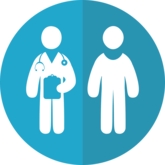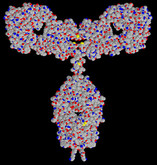Biosimilars
Clinical trials for aflibercept biosimilars
Sandoz, the generics division of Novartis, has announced the start of a phase III clinical trial of its aflibercept (Eylea) biosimilar, a treatment for age-related macular degeneration. Clinical trials for a number of competitive biosimilars are also underway.
Biosimilar pipelines for South Korean firms: Celltrion and Samsung Bioepis
Biosimilars are becoming more important around the world and Korean companies, such as Celltrion Healthcare (Celltrion) and Samsung Bioepis (Samsung and Biogen’s joint venture), are fast becoming major players both in Korea but also worldwide.
Review and meta-analysis of biosimilars for the treatment of rheumatoid arthritis
Authors from Japan provide a new perspective on biosimilars for management of rheumatoid arthritis (RA) to provide evidence of efficacy and safety of biosimilars compared with reference biological disease-modifying anti-rheumatic drugs (bDMARDs) (reference bDMARDs) in patients with RA as a part of the process of developing the 2020 update of the Japan College of Rheumatology (JCR) guidelines for the management of RA [1].
On the edge of transition: European biosimilar clinical trial requirements
Recent debates have focused on the clinical trial requirements for biosimilar approval [1-4]. Further, the regulatory approval of biosimilars in the European Union (EU) has been changed, where in some instances and under certain conditions clinical trials to establish comparable efficacy have been excluded [4]. Still, the regulatory recommendation for more complex molecules such as monoclonal antibodies is without exception to conduct clinical comparability trials [4].
Canada approves five adalimumab biosimilars in last six months
Since October 2020, Canada’s drug regulator, Health Canada, has approved no less than five adalimumab biosimilars for the treatment of multiple chronic inflammatory diseases.
Biosimilar pipelines for South Korean firms: Chong Kun Dang, DM Bio and HK inno.N
South Korea is becoming a more and more important spot on the map when it comes to biosimilars. Although Celltrion Healthcare (Celltrion) and Samsung Bioepis (Samsung and Biogen’s joint venture) are leading the way in Korea and worldwide, other Korean companies, such as Chong Kun Dang Pharmaceutical (Chong Kun Dang), DM Bio (joint venture between Dong-A ST and Meiji Holdings) and HK inno.N (previously CJ Healthcare), are also expanding their biosimilar pipelines.
Are regulatory and scientific reporting biosimilar QAs consistent and complimentary?
Questions have been raised regarding the consistency and complementarity of reporting biosimilar quality attributes between regulatory and scientific communities. For the first time, a study published in Biologicals [1] has found that while the reporting of quality attributes (QAs) by these two sources lacks consistency, overall, they do complement one another.
Approved biosimilars for South Korean firms: Celltrion and Samsung Bioepis
Korean companies, such as Celltrion Healthcare (Celltrion) and Samsung Bioepis (Samsung and Biogen’s joint venture), are becoming more and more important both in the country and worldwide when it comes to developing biosimilars.
Australia approves adalimumab biosimilar Abrilada
Australia’s regulatory agency, the Therapeutic Goods Agency (TGA), has approved the adalimumab biosimilar Abrilada (PF-06410293).
Role of European patient associations when informing patients about biosimilars
Biosimilars contribute to more sustainable healthcare systems by generating competition in the off-patent biologicals market. The extent to which the benefits of competition in the marketplace are exploited depends, of course, on their use in clinical practice. One of the factors determining adoption in clinical practice is the acceptance by healthcare providers (HCP) and patients. Often, a lack of acceptance comes down to shortcomings in knowledge and understanding about biosimilars. Educating patients about biosimilars is therefore considered as one of the key elements for a successful market for off-patent biologicals and biosimilars.













